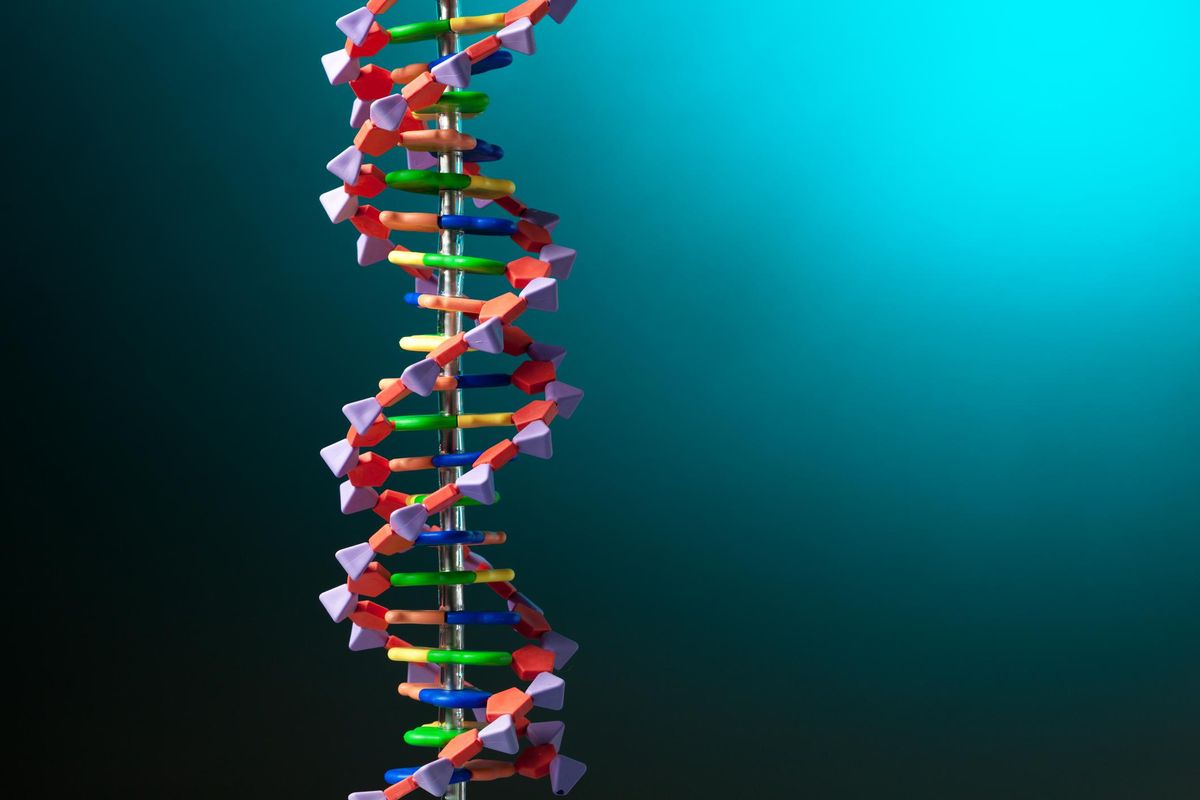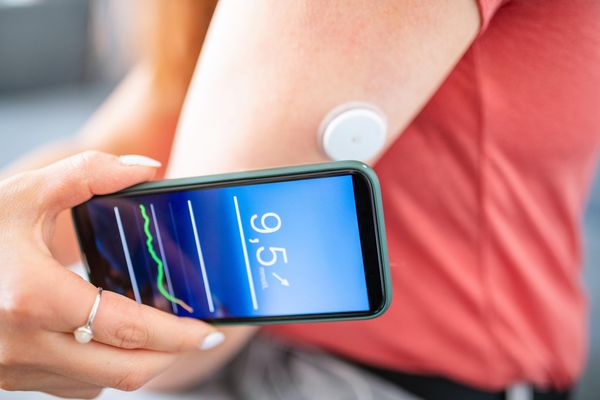Several years ago, I took a home DNA test to learn about my ancestry and health background. My results revealed valuable information, like the fact that I don't have the BRCA1/BRCA2 genes, which can cause breast cancer. I also learned I am less likely to be a deep sleeper, more likely to be bitten by mosquitos than others and am less likely to develop bunions. Each year, the company continues to send me updated health and genetic information, which led me to ponder how exactly these tests work — and what is happening with my data behind the scenes?
The testing process
Direct-to-consumer genetic testing typically collects DNA by having consumers spit into a tube or swab their cheek. Then, they send the sample off in the mail and usually receive results within two to four weeks. "Typically what happens is the DNA tube will get to the laboratory, they process the saliva and extract the DNA out of the white blood cells in the saliva sample," explained Scott Weissman, director of cancer genetics services with Genome Medical, a nationwide telemedicine medical practice focusing on genetics and genomics.
The lab analyzes the sample to search for variations in a person's genetic information. "Some variations identified may be disease-causing, some may predict risk, others may be associated with specific traits or characteristics," said Dawn Allain, director of the genetics counseling graduate program at The Ohio State University Wexner Medical Center.What are you consenting to?
Before signing up, Allain recommends reviewing the company's privacy policy to know what is being done with your sample up front. "Things to consider are: Can your data be deleted, what happens if there is a breach in the company's systems, what is the company allowed to use your data for, will the company sell your data, what happens to your data if the company is sold/goes out of business," she explained.
Weissman said most of the labs do spell out exactly what they automatically do with your data in the fine print. "Some may destroy it after a certain period of time, some may remove any identifiers from it and use it for research purposes, others may choose to keep it in a database that they have indefinitely," he said. And some companies provide you with the option to have your sample stored or discarded/destroyed after it has been analyzed. Allain emphasized that many will also give you the chance to delete your account and data at any time. "However, if you consented to have your data used in research studies, your data has already been shared and will still be in the hands of a potential third-party," she explained. And regardless of their policies, some companies may be required to disclose your information to law enforcement officials in the event of a court order. The same goes for data you've uploaded into third-party genetic interpretation services.
Direct-to-consumer DNA testing companies will obtain some level of consent prior to using the services, which usually includes language about risks, benefits and testing limitations. Some automatically add your information to a database, while others give you the option to opt out. "I encourage my patients to see if the company they are using has opt-in clauses or opt-out clauses," Allain said.
What you’ll find out
DNA health testing can let you know if you have predispositions to a variety of conditions such as chronic kidney disease, age-related macular degeneration, Type 2 diabetes, late-onset Alzheimer's disease and Parkinson's disease. You can also learn whether you're a carrier of ailments like cystic fibrosis or hereditary fructose intolerance. Weissman said the latter can be helpful with family planning.
These tests can also estimate the likelihood of possessing certain traits, such as whether your urine smells funny after eating asparagus, whether you like the taste of cilantro and whether you have a tendency to become flushed after drinking alcohol.
The majority of these home DNA kits are not regulated by the FDA. But, in 2017, the organization did approve one company for 10 specific disease risk conditions, like the Factor XI deficiency blood clotting disorder, Celiac disease and Parkinson's disease.The pros and cons
"As a genetic counselor, I think one of the pros is increased awareness about the impact of family history and genetic traits on one's health," Allain explained. She said that people may take more proactive health measures and seek out medical care that they wouldn't have otherwise, based on information received in their test results. "I often see people after they have had this type of testing because it made them stop and realize they may benefit from a clinical evaluation and/or genetic testing."
But these tests can also provide a false sense of security. "Perhaps the biggest risk is that people who have personal or family histories of diseases or medical conditions will think that if the company does not find a genetic change related to their symptom/disease, then they are not at risk," Allain said. "This may not be the case, because not only are not all genes analyzed on these tests (i.e., thus not checking for all genetic conditions), even among the genes analyzed, testing may only be looking for the more common changes in the general population so disease identification may be missed," she said.
Then there is the possibility of finding out something you can't do anything about. "You get to know that maybe your risk is a little bit higher, but practically, there's not much you can do in terms of screening for that or changing diet or anything that would really impact what you're going to do," Weissman said.
The bottom line
If you're looking for serious medical information, at-home DNA kits aren't the way to go about it, but they can help you get an idea of your general health risks and help you better understand your ancestral background, according to Weissman. "Each of these companies does it a little bit differently, so you'll never really get the exact same results between the companies, but you may get a general idea of where you're from," Weissman said.
And if you're interested in the entertainment aspect of hearing whether you're prone to being afraid of heights, whether you're more likely to enjoy salty or sweet snacks, or what kind of earwax you produce, these tests can be a fun way to find out.






